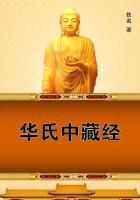Nevertheless reaction from such a course is inevitably an uncompromising attempt on the part of the work-( 148)-ers to protect themselves from overexertion and to regulate the output. The worst cases I have ever known have occurred in unorganized shops and have been unregulated and unaided by any trades union. The "pace setter" in such a shop is often driven out and treated with the same animosity which the "scab" receives in a union shop.
In the same spirit we blame trades unionists for that disgraceful attitude which they have from time to time taken against the introduction of improved machinery -- a small group blindly attempting to defend what they consider their only chance to work. The economists have done surprisingly little to shed light upon this difficulty; indeed, they are somewhat responsible for its exaggeration. Their old theory of a "wage fund" which did not reach the rank and file of trades unionists until at least in its first form it had been abandoned by the leading economists, has been responsible both for much disorder along this line, and for the other mistaken attempt "to make work for more men."A society which made some effort to secure an equitable distribution of the leisure and increased ease which new inventions imply would remove the temptations as well as the odium of such action from the men who are blinded by ( 149) what they consider an infringement of their rights.
If the wonderful inventions of machinery, as they came along during the last century, could have been regarded as in some sense social possessions, the worst evils attending the factory system of production -- starvation wages, exhausting hours, unnecessary monotony, child labor, and all the rest of the wretched list -- might have been avoided in the interest of society itself. All this would have come about had human welfare been earlier regarded as a legitimate object of social interest.
But no such ethics had been developed in the beginning of this century.
Society regarded machinery as the absolute possession of the man who owned it at the moment it became a finished product, quite irrespective of the long line of inventors and workmen who represented its gradual growth and development. Society was, there fore, destined to all the maladjustment which this century has encountered. Is it the militant spirit once more as over against the newer humanitarianism? The possessor of the machine, like the possessor of arms who preceded him, regards it as a legitimate weapon for exploitation, as the former held his sword.
One of the exhibits in the Paris Exposition of ( 150) 1900 presented a contrast between a mediaeval drawing of a castle towering above the hamlets of its protected serfs, and a modern photograph of the same hill covered with a huge factory which overlooked the villages of its dependent workmen. The two pictures of the same hill and of the same plain bore more than a geographic resemblance.
This suggestion of modern exploitation would be impossible had we learned the first lessons which an enlarged industrialism might teach us. Class and group divisions with their divergent moralities become most dangerous when their members believe that the inferior group or class cannot be appealed to by reason and fair dealing, but must be treated upon a lower plane.
Terrorism is considered necessary and legitimate that they may be inhibited by fear from committing certain acts. So far as employers exhibit this spirit toward workmen, or trades unionists toward non-unionists, they inevitably revert to the use of brute force -- to the methods of warfare.
Endnotes Organized Labor, John Mitchell. Preface.















